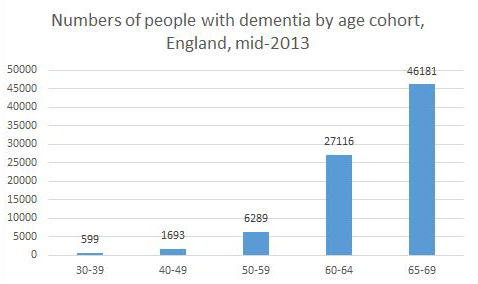
October 26, 2015, by Michael Jennings
Dementia in the workplace
By Justine Schneider, Professor of Mental Health and Social Care at The University of Nottingham.
‘People may continue working to 100’ said the radio today. While politicians, writers and musicians are notable for their long working lives, this news may give astute employers pause for thought in the light of the growing rate of dementia in the older population. An average English parliamentary constituency has about 150 people aged below 70 who are affected, many of them likely to be working with undiagnosed dementia. It is hidden or denied because disclosure brings the prospect of loss of self-esteem, social status and roles. Diagnosis threatens the ability to carry out everyday activities independently, particularly driving. The literature indicates that people with dementia wish to be treated as normal while adjusting gradually to their losses.
For many people affected by dementia, employment is an irreplaceable source of self-esteem, normality, social acceptance and enjoyment, as well as income. However, during the long process of recognising that there is a problem, seeking help and confirming the dementia, an individual– shocked by the diagnosis and depressed about the future – may well simply resign. Unless dementia is recognized and acknowledged in the workplace, provision designed to offset the impact of disability, such as reasonable adjustments and referrals for occupational assessments, cannot be implemented, disadvantaging the person with dementia and effectively depriving them of their rights under the Equality Act 2010, while employers lose their expertise and experience.
Dementia services, employment support specialists and employers need to work together to explore how to support people with dementia effectively in the workplace. New research findings due out around Christmas will help to map out the next steps. The University of Nottingham’s Professor Amanda Griffiths and Dr Miriam Stanyon have surveyed what employers want to know about dementia, with support from Public Health England. Reliable information, informed discussion, and action to challenge the stigma of dementia are sorely needed.
Are you equipped to support someone with dementia? Find out more by visiting the IDEA website (Improving Dementia Education and Awareness), a free online virtual learning centre dedicated to improving the care and quality of life of people with dementia. You can also read more on the Alzheimer’s Society website.
No comments yet, fill out a comment to be the first


Leave a Reply